Evolution over revolution: Azerbaijan's key to its historic victories Time has spoken
Time is the best judge. Once again, this truth was confirmed while analyzing the situation in three GUAM member countries — Ukraine, Georgia, and Moldova. These countries have long been held up as examples for Azerbaijan, often urging our nation to look at their paths to democracy. However, time has provided a clear and honest answer to the question of whose developmental trajectory has been more correct and effective.
The Georgian "Rose Revolution": 21 years later
I will start with Georgia, where the "Rose Revolution" took place in 2003. Let me remind you that it started as a result of fraudulent parliamentary elections. The opposition protests reached their peak on November 22, 2003, the first day of the session of the new Georgian parliament, the legitimacy of which was questioned. On the same day, the opposition, led by Mikheil Saakashvili, seized the parliament building with roses in their hands (from where the revolution got its name), interrupted Shevardnadze's speech and forced him to leave the hall accompanied by bodyguards.
The president then declared a state of emergency in the country and called for troops and police near his residence in Tbilisi. However, even the elite police units refused to support him. On the evening of November 23, St George's Day in Georgia, Shevardnadze held a meeting with opposition leaders Saakashvili and Zhvania to discuss the current situation in the country. After the meeting, Shevardnadze announced his resignation.
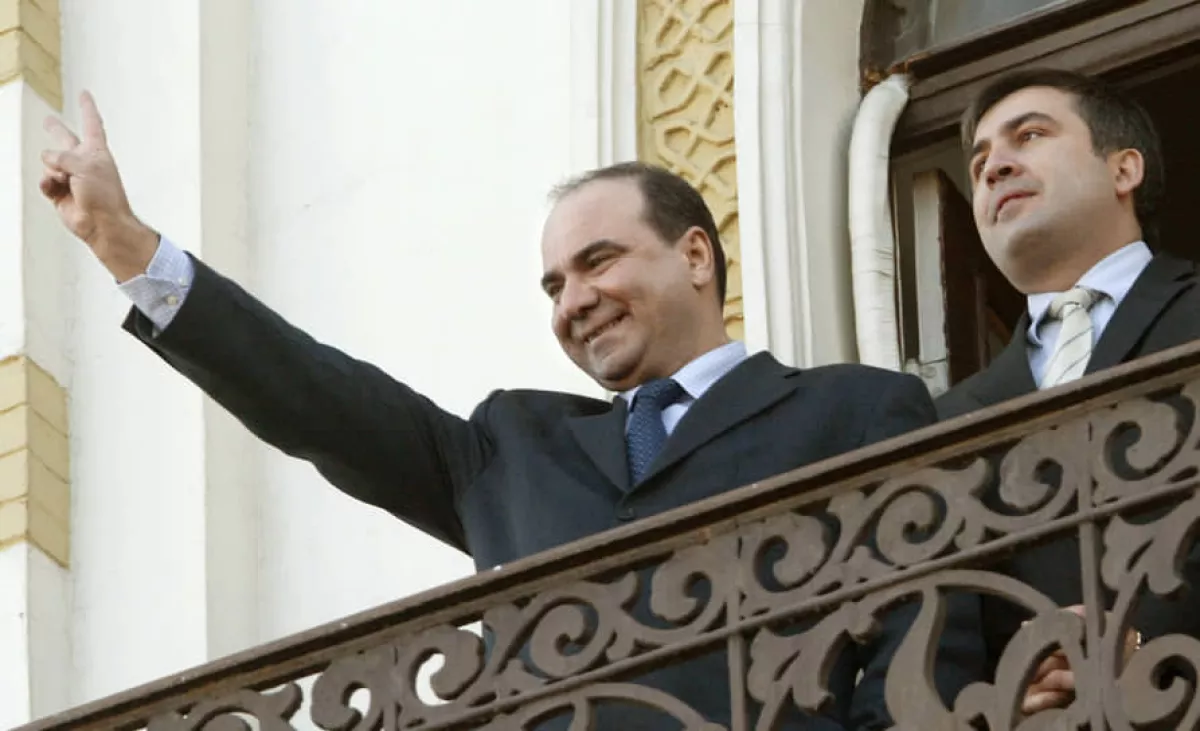
I clearly remember the immense pathos displayed by Georgian politicians of various stripes at that time when they engaged in discussions with Azerbaijani politicians, political scientists, and journalists. Almost every one of them claimed that they had personally played a part in the victory of the "Rose Revolution" and insisted that we should follow their example. Any attempt to explain that each country has its own unique development path was met with nothing more than smirks, condescending glares, and a slap on the shoulder.
Now, in November 2024, parliamentary elections have once again taken place in Georgia. The ruling Georgian Dream party secured 53.9% of the vote. Four other opposition parties also passed the 5% threshold. However, all of them have refused to recognize the election results and enter parliament.
Today, the President of Georgia holds French citizenship. South Ossetia and Abkhazia are no longer under Georgia’s control. The leadership of the ruling Georgian Dream party now speaks of the importance of mutual repentance to address these issues. Furthermore, the ruling party advocates for normalizing relations with Russia, whose troops were just a few dozen kilometres from Tbilisi in August 2008. Meanwhile, Mikheil Saakashvili sits in prison, sending out proclamations from his cell that are far removed from reality.
The endless tragedy of Ukraine
Let's continue. It's November again, but this time it’s 2004, and Ukraine is experiencing a boom. This came after the presidential election, where the candidate from the east of the country, Viktor Yanukovych, the incumbent prime minister and leader of the Party of Regions, faced Viktor Yushchenko, the candidate from the western regions and former prime minister. During the second round of voting in Donetsk, the Party of Regions manipulated 750,000 votes in Yanukovych’s favour, triggering mass protests on Maidan Nezalezhnosti in Kyiv that lasted for weeks.
In the end, the election results were annulled, and Viktor Yushchenko became president of Ukraine, but this event marked the beginning of a tragic polarization in Ukrainian society. This rift would eventually lead to further political upheaval and a prolonged period of instability that would weaken the country irreparably. I vividly remember how, after the "Orange Revolution" in Ukraine, political technologists and politicians from the country became highly sought after. They, much like the Georgian revolutionaries before them, reveled in the glow of their newfound fame, offering mentorship, and attempting to educate Azerbaijani politicians and journalists. Domestic radical opposition figures at the time eagerly absorbed their lessons, all while sporting their orange scarves and ties.
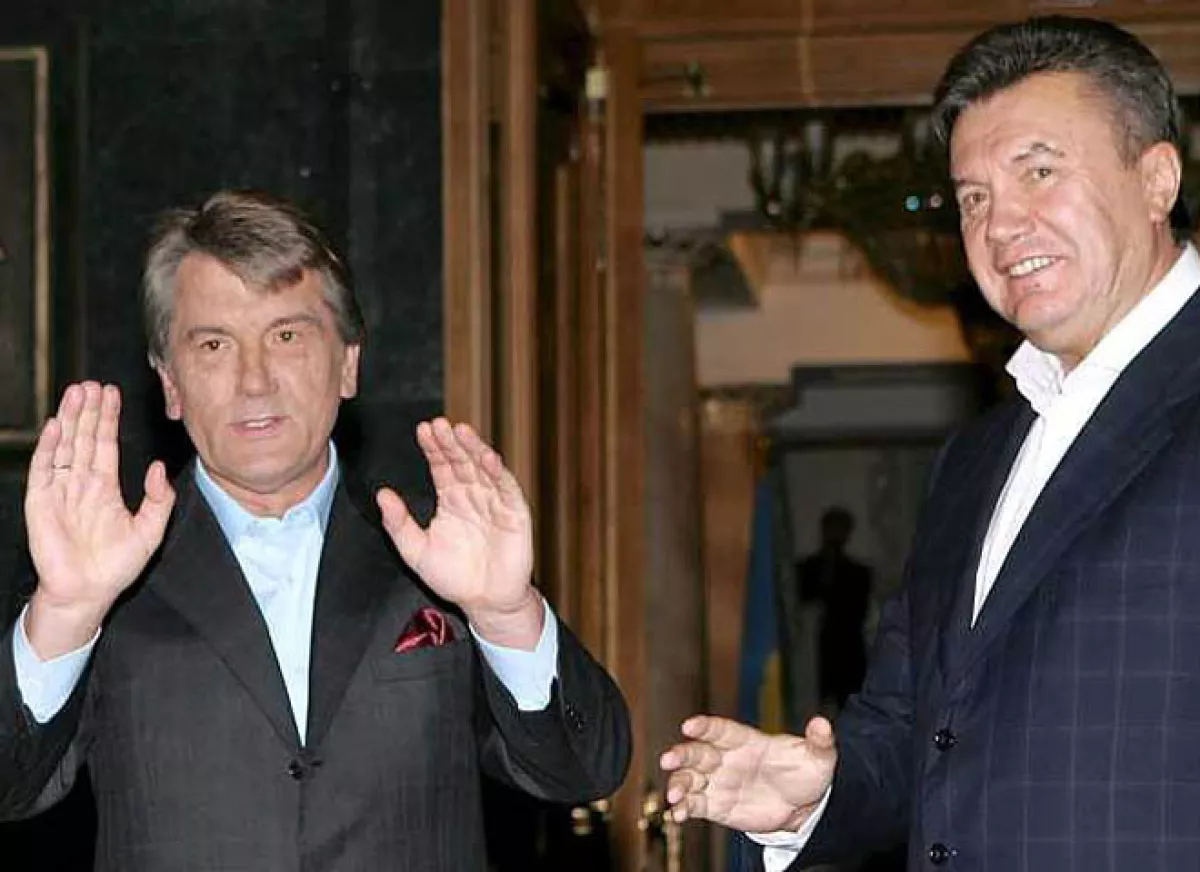
But just a few years later, let me remind you, Ukraine experienced what could be described as a counter-revolution. The same Viktor Yanukovych, whom the people of Maidan had opposed in 2004, became president of the country. Meanwhile, Viktor Yushchenko, who had once been hailed as a beacon of hope, remained in the memory of Ukrainians as a president who failed to live up to the immense expectations placed upon him. Over time, it became clear that he was not the only Ukrainian president to face such disappointment.
Fast forward to November 2013. The Euromaidan movement erupted in Ukraine after the government halted preparations for signing the Association Agreement with the European Union. The turning point of Euromaidan came on the night of November 30, when authorities attempted to violently disperse a tent camp set up by student protesters, using Berkut forces. This confrontation ultimately dragged on until the end of February 2014.
On February 21, President Yanukovych made concessions, signing an agreement with the opposition to resolve the crisis. The agreement outlined, among other things, the return to the 2004 version of the Constitution, the formation of a government of national unity, the holding of early presidential elections by December 2014, the renunciation of the use of violence, and an investigation into recent acts of violence. However, the very next day, the Verkhovna Rada declared that Yanukovych had "unconstitutionally self-removed from the exercise of constitutional powers" and was not fulfilling his duties. They set the date for early presidential elections on May 25, 2014.
From February 23, 2014, the duties of the President of Ukraine were assumed by the new chairman of the Verkhovna Rada, Oleksandr Turchynov. It was under Turchynov’s leadership that Russia annexed Crimea. While Russia used the Euromaidan protests as a pretext for the annexation and the subsequent hybrid war against Ukraine, the ultimate loser was Ukraine itself. As I have noted earlier, the country remained deeply divided, even after the Orange Revolution.
The fifth president of Ukraine, Petro Poroshenko, also remains in the memory of the country's citizens as a leader who failed to meet the immense expectations for positive change. As a result, Poroshenko lost the 2019 presidential election to Volodymyr Zelenskyy. In that election, the overwhelming majority of Ukrainians did not vote for Zelenskyy, who lacked a coherent political program but rather voted against Poroshenko, whose anti-rating was still sky-high, far exceeding his approval rating.
What followed? Zelenskyy's political immaturity and catastrophic errors in setting the country's key priorities created the perfect conditions for Russia to launch a full-scale invasion of Ukraine. This war has now lasted almost 1,000 days. Ukraine has lost a significant portion of its territory, with dozens of its cities reduced to rubble. The country has become entirely dependent on financial and military aid from the United States and the European Union.
Millions of Ukrainians have fled the country, and many have no intention of returning. Even members of the Verkhovna Rada representing Zelenskyy's "Servant of the People" party have fled Ukraine. Furthermore, some officials from the ruling party have reportedly defected to Russia. On top of this, Ukraine is currently plagued by corruption scandals of shocking magnitude.
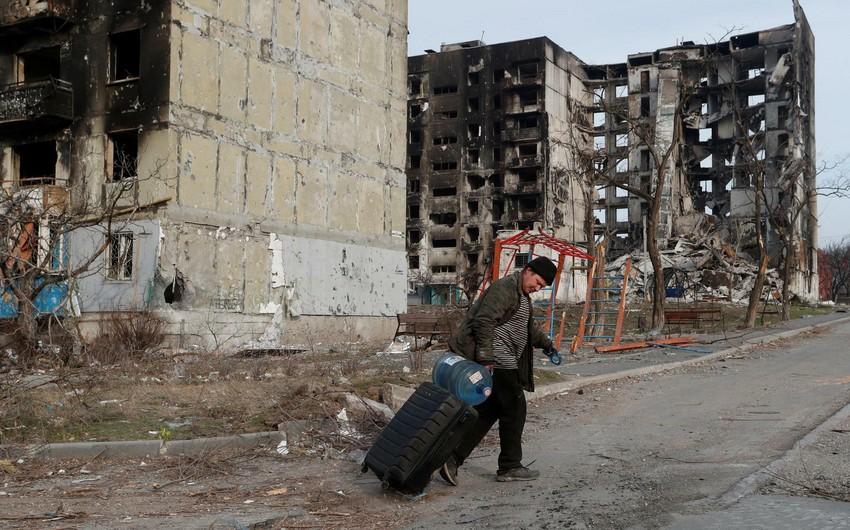
As a result, the approval rating of Ukraine's president, Volodymyr Zelenskyy, has sharply declined. Recent results from a project monitoring public trust in key figures influencing opinion in the country have been made public. The project was carried out by the Future Research Foundation, with the participation of Info Sapiens and Active Group.
Valeriy Zaluzhnyy, the former head of the Ukrainian Armed Forces and now Ukraine's ambassador to the UK, tops the list. He enjoys the trust of 37.8% of respondents who fully trust him, with another 37.5% expressing partial trust. Only 16.2% of respondents either fully or partially distrust him, giving him a trust-to-distrust balance of +59%. This is considered a very high approval rate.
Kyrylo Budanov, the head of the Main Intelligence Department of the Ministry of Defence of Ukraine, holds second place in terms of trust. He is fully trusted by 20.8% of respondents, with 36.9% offering partial trust. Budanov's total distrust rate stands at 24%, resulting in a trust balance of +33.7%.
In contrast, Volodymyr Zelenskyy, the current president of Ukraine, ranks third. Only 49.2% of respondents express full or partial trust in him, while 44.5% do not trust him fully or partially. This leaves Zelenskyy with a trust-to-distrust balance of just +4.7%, which is a notably low figure for a sitting president. This rating is expected to decline further as Ukraine faces additional territorial losses.
Moldova: Divided nation facing threat of turmoil
Finally, Moldova. This country, too, witnessed mass riots, which some referred to as the "Twitter revolution," while others dubbed it the "brick revolution." The unrest followed the announcement of the preliminary results from the April 2009 parliamentary elections, in which the Communist Party of Moldova (PCRM) won 49.96% of the vote. This was followed by the Liberal Party with 12.79%, the Liberal Democratic Party with 12.26%, and the Our Moldova Alliance with 9.81%.
At a certain point, mobile phone networks were shut down in Chisinau, and information websites were blocked. In a televised address to the nation, then-President Vladimir Voronin accused opposition leaders of attempting a coup d’état. On April 8, 2009, during an emergency government meeting, Voronin announced the introduction of a visa regime for Romanian citizens, and declared Romania’s ambassador to Moldova persona non grata. Voronin justified these actions by claiming they were in response to Romania’s interference in Moldova’s internal affairs and the involvement of Romanian citizens in the unrest.
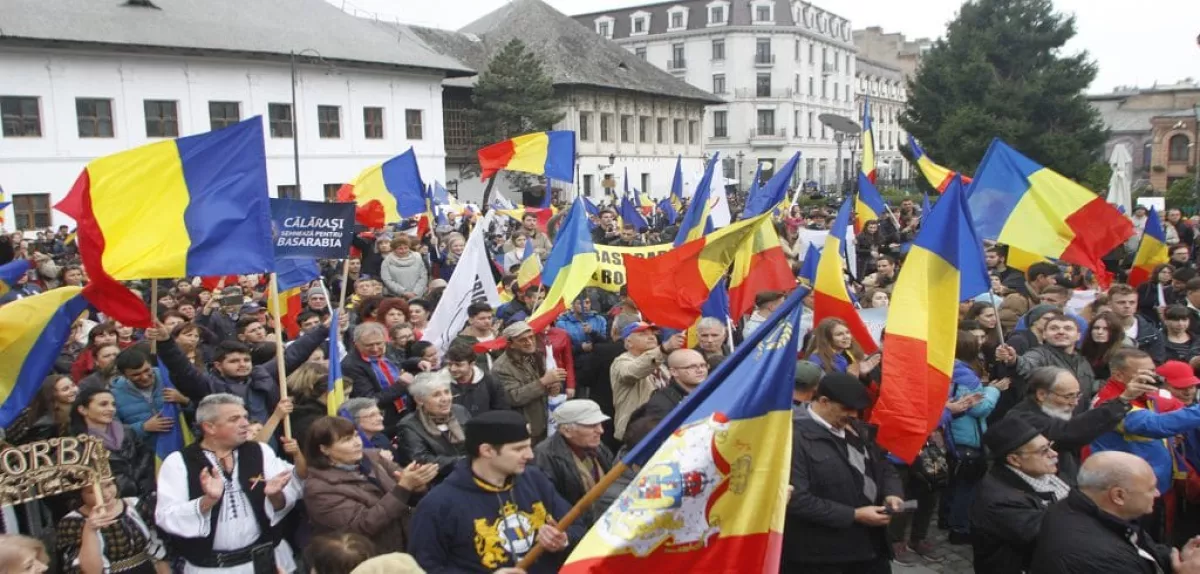
In one way or another, the mass riots in Moldova did not result in a change of power, but they did lead to a recount of the votes. As a result, the Communist Party secured 60 mandates. A subsequent repeat parliamentary election was held, where the Communist Party, receiving 5% fewer votes than in the previous election (44.7%), lost its majority and was pushed into opposition. This led to the formation of the Alliance for European Integration (AEI), consisting of four parties, which then established a new government.
However, Moldova remains deeply divided over the country's future, a division that became evident during the recent presidential elections, which took place in two rounds. In the end, Maia Sandu emerged victorious, but her final 11% lead over Alexandru Stoianoglo was largely attributed to over 300,000 Moldovan citizens living and working in the EU. Inside Moldova, Stoianoglo received 51.19% of the vote on November 3. In response, the Moldovan Socialists (SPRM) issued a statement calling Sandu "the president of the diaspora" and refused to recognize the election results.
This division in society is stark, and it is expected to intensify as Moldova heads toward another election in 2025 — this time parliamentary. It’s important to note that in Moldova, the Parliament and the Prime Minister appointed by it wield significant power, while the President's role is more limited. Therefore, the upcoming parliamentary elections could trigger major political upheavals within the country.
In lieu of an afterword
As we can see, all three countries share a common problem: a profound division within society. At the same time, none of these nations has been able to restore its sovereignty and territorial integrity. Georgia’s European future is uncertain, and the question of regaining control over South Ossetia and Abkhazia is more a topic of discussion than a tangible goal.
Ukraine continues to resist Russian aggression but has not received concrete guarantees from its allies regarding NATO or EU membership. A return to Ukraine’s 1991 borders is unfeasible, and Kyiv lacks the resources to achieve it. Moreover, a return to the state of affairs that existed before the war began in February 2022 is also increasingly unlikely. The “freezing” of the conflict, which would essentially mean Ukraine’s capitulation, seems like a clearer possibility.
Moldova, too, will struggle to resolve its territorial disputes. This is largely due to the presence of an Operational Group of Russian troops in Transnistria. The population of this region, notably, played a crucial role in Alexandru Stoianoglo’s victory in the presidential elections. In ATU Gagauzia, Stoianoglo received an overwhelming 97.04% of the vote, with just 2.96% casting ballots for Maia Sandu. These results starkly indicate that Moldova will continue to face internal turmoil for the foreseeable future.
Let us now turn our attention to Azerbaijan, which has opted for an evolutionary, rather than revolutionary, path of development. Our country has fully restored its sovereignty and territorial integrity, achieving this despite the efforts of the OSCE Minsk Group co-chair countries. Azerbaijan stands as the undisputed economic leader of the South Caucasus and boasts the most capable military in the region, ranking among the top thirty strongest armies in the world. At the same time, Azerbaijan does not seek NATO membership, prioritizing the development of bilateral relations with NATO member states instead.
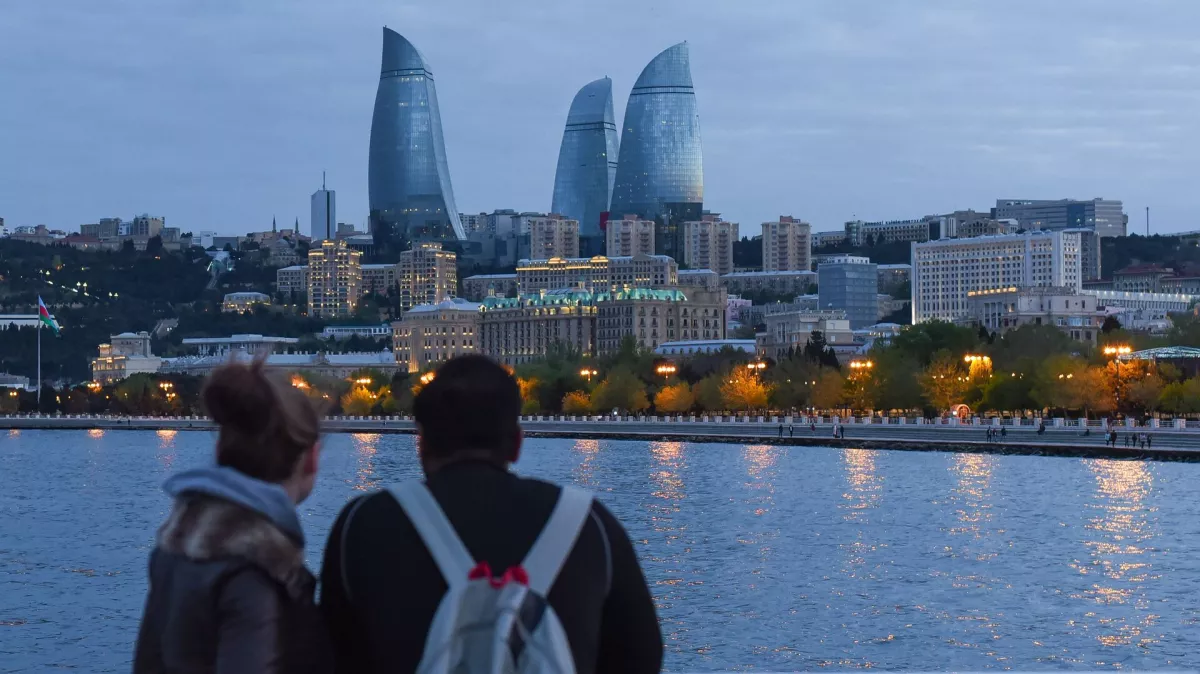
Azerbaijan maintains a balanced foreign policy, cultivating ties with both Iran and Israel, as well as Russia and Ukraine. Our country plays a crucial role in ensuring the energy security of Europe, interacting with the EU as its primary foreign economic partner, though it does not pursue EU membership. Azerbaijan enjoys significant influence within organizations such as the CSTO and the EAEU, despite not being a member of these bodies.
Above all, Azerbaijan has achieved something vital: internal political stability and a unified society. Citizens of different nationalities and religions stood as one during the 44-day war, ensuring our great victory. This unity continues to be the cornerstone of our nation's success and will secure the future development of our state, which has chosen the path of evolution over revolution.








